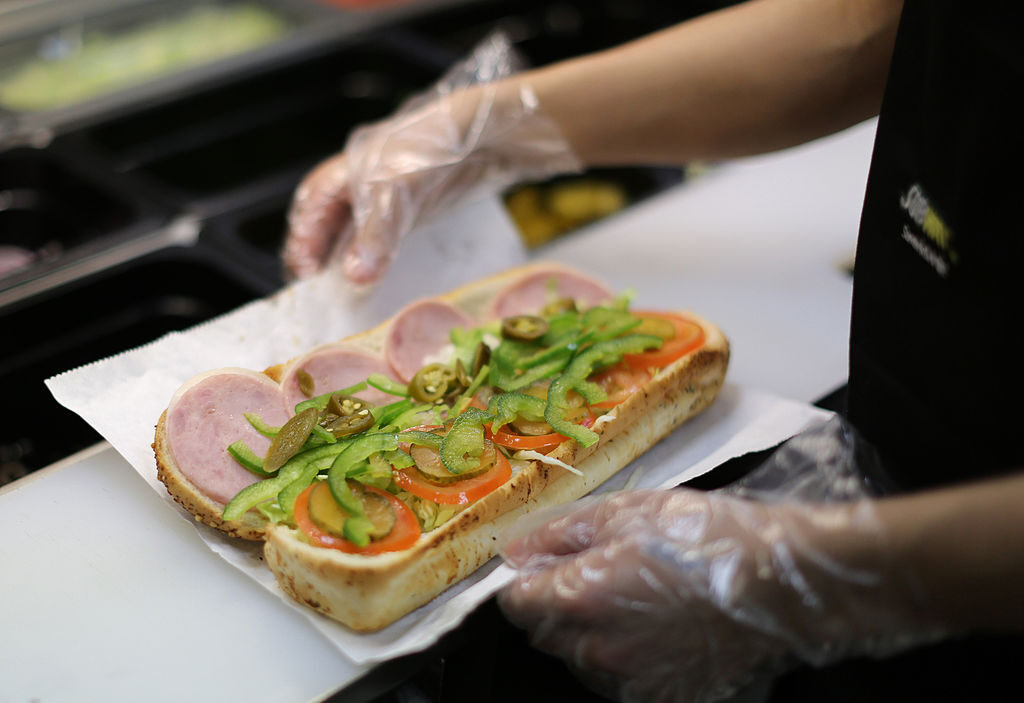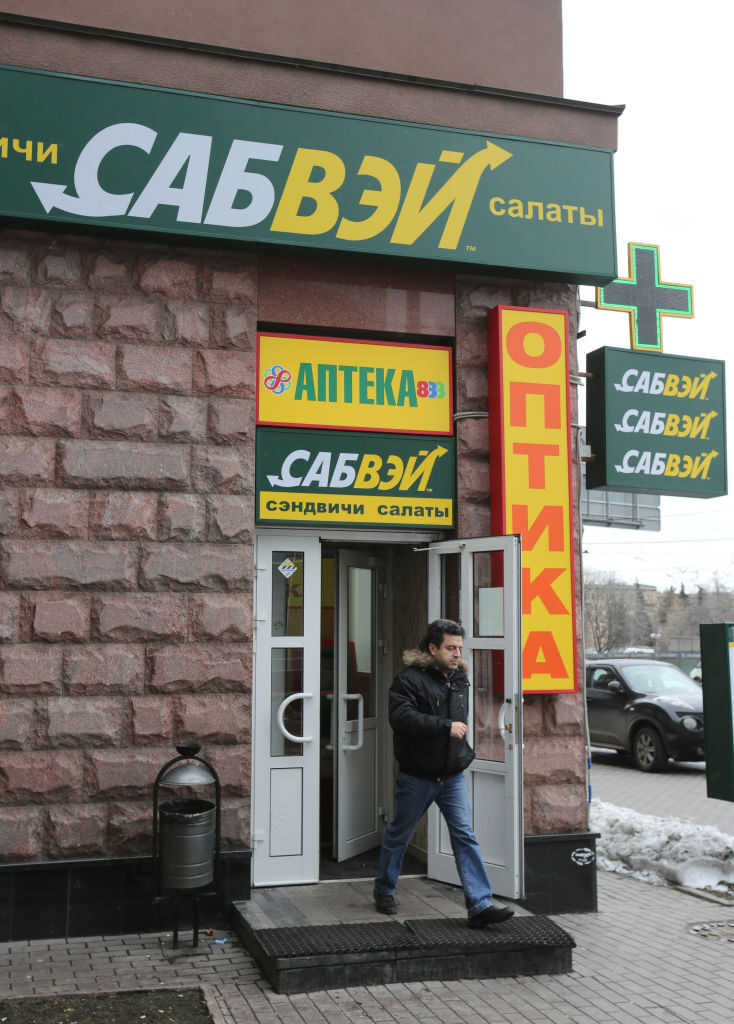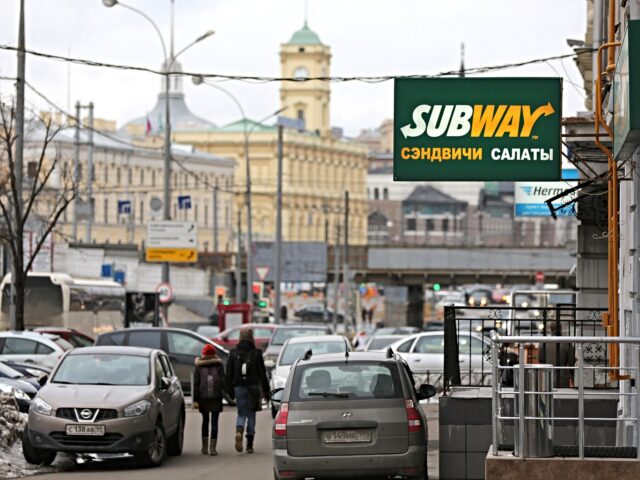The Ukrainian National Agency of Corruption Prevention (known by its Ukrainian acronym NAZK) on Wednesday added the Subway chain of sandwich shops to its list of “International Sponsors of the War” list, accusing Subway of helping to fund the Russian invasion because it has over 500 restaurants selling food in the “aggressor’s market.”
NAZK announced its decision in a post on the encrypted messaging platform Telegram that began with emojis of a hamburger and an angry face, which seems like an effective nonverbal means of communicating displeasure with a restaurant that does not sell hamburgers. The point was driven home by concluding the post with a photo of a Subway meal in which the meat of the sandwich was replaced by a Russian missile.
The Ukrainian anti-corruption agency slammed Subway for “paying hundreds of thousands of dollars in taxes to the budget of the Russian Federation,” using “sanctioned Russian social networks” to advertise, and using Russian food delivery services that “cooperate with state and local law enforcement agencies of the aggressor country.”
“After the start of the full-scale invasion, the company did not report any reduction in its operations in the Russian Federation, and there were no attempts by the company’s management to condemn Russia’s war in Ukraine,” NAZK charged.
NAZK accused Subway of hypocrisy for claiming to provide a “healthy alternative to traditional fast food” because it cares about “the health of consumers,” while simultaneously “financing the murders of Ukrainians” by paying taxes in Russia.
On its main website, NAZK accused Subway of “misleading” the public by claiming its restaurants in Russia are all independently owned and operated, when in truth the Subway franchise in Russia is owned by a St. Petersburg-based company called Subway Russia Service Company.

File/An employee prepares a sandwich inside a Subway fast food restaurant in Moscow, Russia, on Sunday, April 7, 2013. (Andrey Rudakov/Bloomberg via Getty)
NAZK described Subway using a Russian law firm to find a way to collect royalties from the Russian franchise after Russian banks blocked payments to entities in the “unfriendly state” of America.
Ukraine created the International Sponsors of the War list in the summer of 2022 to increase public pressure against multinational corporations that continue doing business in Russia. Only a handful of companies with high profiles have been added to the list, including Nestle, PepsiCo, Philip Morris International, Bacardi, Unilever, and the Mars Inc. candy company.
About a dozen of the listed companies are Chinese conglomerates, including the China National Offshore Oil Corporation (CNOOC), Sinopec, China National Petroleum Corporation (CNPC), and the Alibaba Group. China is Russia’s major international ally after the invasion of Ukraine and has refused to criticize it. Russian and Chinese leaders Xi Jinping and Vladimir Putin have showered praise on each other and declared there are “no limits” to the Moscow-Beijing partnership.
NAZK says about 1,600 foreign companies are still doing business in Russia, but Subway was only the 49th country added to the International Sponsors of the War list. NAZK accepts recommendations for new entries from outside advocacy groups and then evaluates them, with particular attention paid to companies that pay large sums of taxes in Russia, enhance the Russian economy, or provide goods and services useful to the Russian military.

File/A customer exits a Subway fast food restaurant in Moscow, Russia, on Sunday, April 7, 2013. (Andrey Rudakov/Bloomberg via Getty)
In late September, Ukraine removed a Hungarian bank called OTP from the list because it “made a number of commitments regarding its future plans for the Russian market.” OTP Bank was added to the list in May 2023.
The Ukrainian government hoped that removing the bank would persuade Hungary to stop blocking billions of euros in European Union (EU) military assistance, but Hungarian Prime Minister Viktor Orban has yet to lift his veto threat.
The International Sponsors of the War list is a “soft sanction,” meaning it has no legal consequences and enforces no penalties. By definition, companies added to the list have not been prevented from conducting operations in Russia by international sanctions.

COMMENTS
Please let us know if you're having issues with commenting.